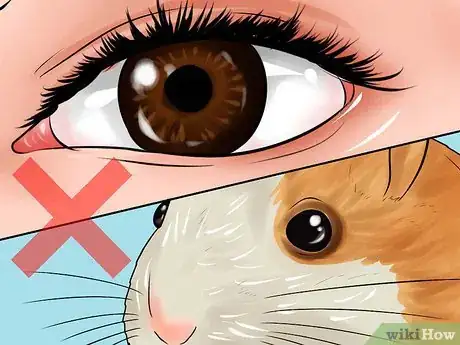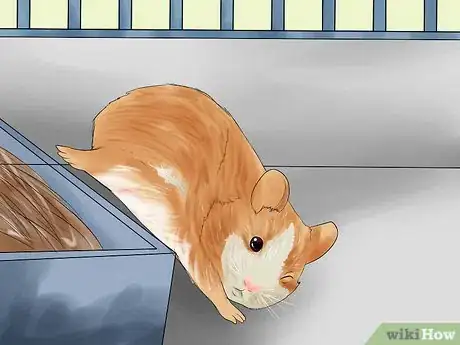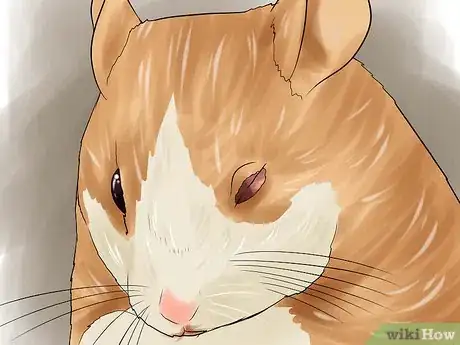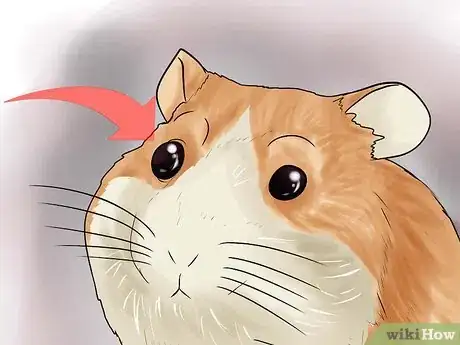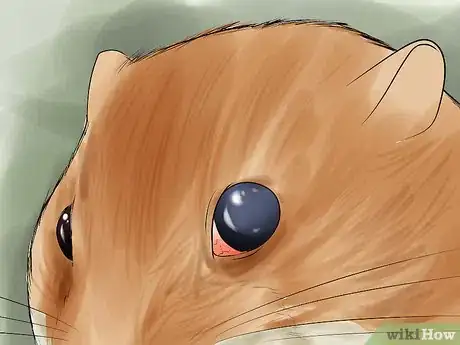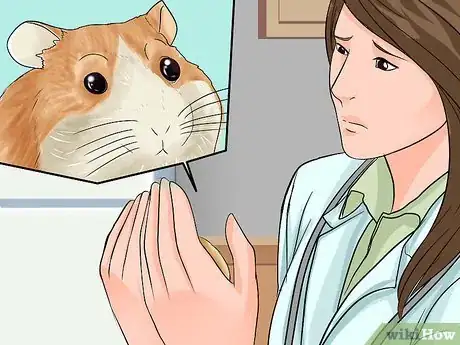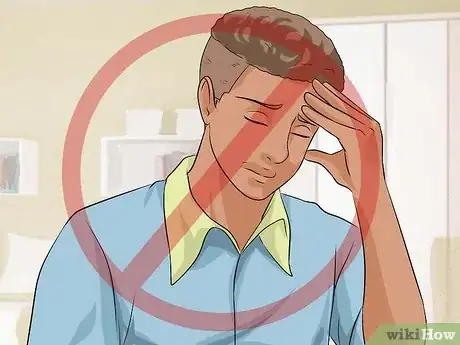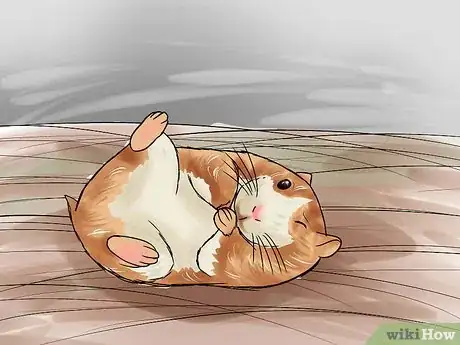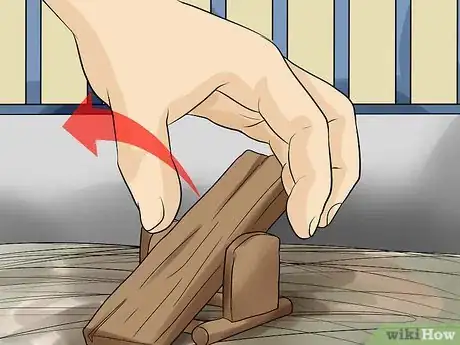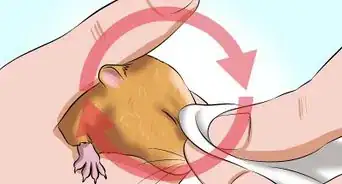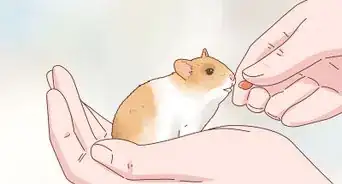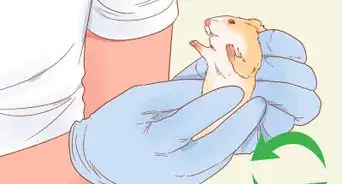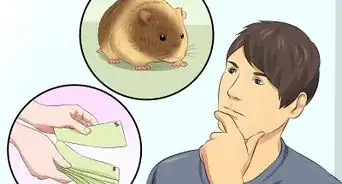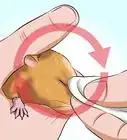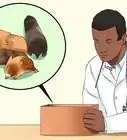This article was co-authored by Pippa Elliott, MRCVS. Dr. Elliott, BVMS, MRCVS is a veterinarian with over 30 years of experience in veterinary surgery and companion animal practice. She graduated from the University of Glasgow in 1987 with a degree in veterinary medicine and surgery. She has worked at the same animal clinic in her hometown for over 20 years.
This article has been viewed 89,386 times.
If you're concerned that your hamster may be blind, it's important to pay careful attention to the symptoms he is exhibiting. Hamsters can suffer from a variety of conditions that may affect their eyesight, some of which are serious and some of which are not. It can be very hard to tell if a hamster is blind because they naturally have very poor vision. Luckily, this also means that going blind is usually not much of an adjustment for them, as they rely much more heavily on their senses of smell and hearing.
Steps
Recognizing Symptoms of Eye Problems
-
1Don't expect your hamster to have human-like vision. Hamsters are naturally very near-sighted. Whereas humans rely primarily on their sense of sight to get around the world, hamsters rely much more on smell and hearing. Just because your hamster doesn't seem to be able to see like a human does not mean anything is wrong.
-
2Be aware of changes in behavior. Although it may be difficult to diagnose with any certainty, excessive clumsiness may be a sign that your hamster is going blind. Take notice is he starts walking into things or falling off of things.Advertisement
-
3Recognize the symptoms of cataracts. If your hamster's eyes look milky, this is a sign of cataracts. Cataracts usually occur in older hamsters, and they can lead to total blindness.[1]
- There is no treatment available for cataracts in hamsters, but the condition doesn't cause them any pain.
-
4Recognize the symptoms of conjunctivitis. If your hamsters eyes seem inflamed or his eyelids are stuck together with a crusty discharge, he may be suffering from a condition called conjunctivitis, but he is most likely not blind. This condition has a variety of causes, including bacterial infection or irritation from a foreign object.[2]
- You can attempt to loosen your hamster's eyelids by wiping the discharge away with a clean, moist cotton ball.
- If your hamster's symptoms continue, you should take him to the vet. He may need to have his eyes flushed with saline, or he may need antibiotics.
-
5Recognize the symptoms of exophthalmos. If your hamster's eyeball seems to be protruding from the socket more than usual, he may be suffering from a condition called exophthalmos, also known as proptosis. This is a serious condition that can cause your hamster to lose his eye. Other symptoms include an enlarged eyeball, redness, and watery discharge. [3]
- This condition requires immediate veterinary care!
-
6Recognize the symptoms of glaucoma. Just like humans, hamsters can develop glaucoma, which eventually leads to blindness. If you hamster has glaucoma, you may notice that he has a strong aversion to light or that his eyes bulge a bit.
- If you notice these symptoms, take your hamster to the vet. Without treatment, glaucoma can be very painful.
- Some hamsters can be treated with medications, while others may need to have their eyes surgically removed.
Caring for a Blind Hamster
-
1Bring your hamster to the vet. You should always bring your hamster to the vet if you believe there is anything wrong with his eyes. If it turns out the be something like a cataract, your vet will not be able to offer any treatment, but if it turns out to be an infection of the eye, treatment is available.
-
2Don't worry too much. If your hamster is blind or is losing his sight, there's not much you can do about it. It may be helpful to know, however, that most hamsters can still live perfectly normal, happy lives even without their vision. Because hamsters have poor vision to start with, they don't rely on it much to get them through their daily lives.[4]
-
3Don't be surprised by behavioral changes. Some hamsters may become more skittish or irritable when they become blind, so don't be too alarmed if you notice these behaviors in your hamster.[5]
-
4Make accommodations as necessary. Although most hamsters will do just fine without their eyesight, some may have a harder time adjusting. If you notice that your hamster is becoming very clumsy, take care to remove anything from the cage that might cause injury.
References
- ↑ http://hamstersaspets.co.uk/hamster-ear-and-eye-care/
- ↑ http://www.merckvetmanual.com/pethealth/exotic_pets/hamsters/disorders_and_diseases_of_hamsters.html
- ↑ http://www.petmd.com/exotic/conditions/eyes/c_ex_hm_exophthalmos
- ↑ http://hamstersaspets.co.uk/hamster-ear-and-eye-care/
- ↑ http://hamstersaspets.co.uk/hamster-ear-and-eye-care/
